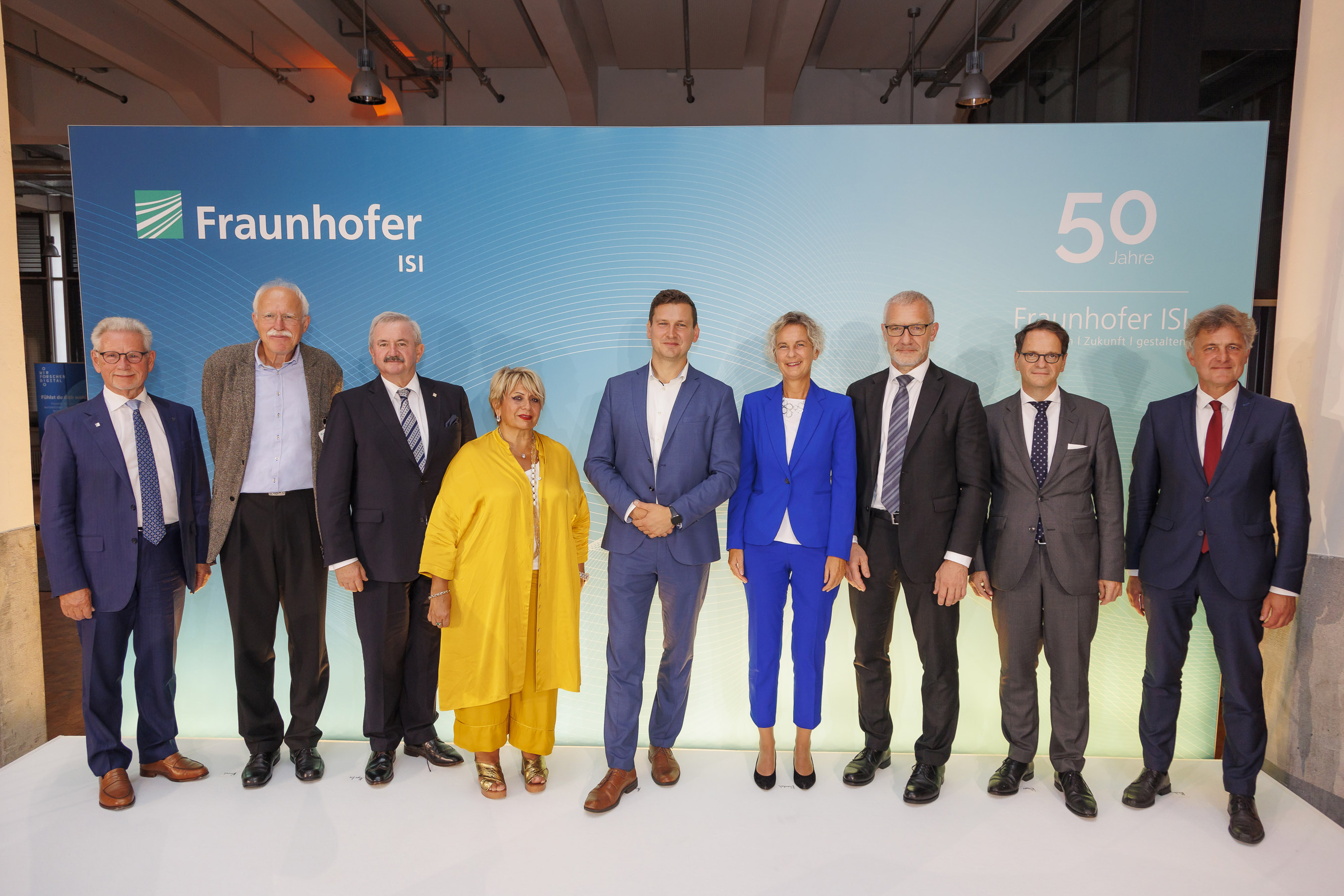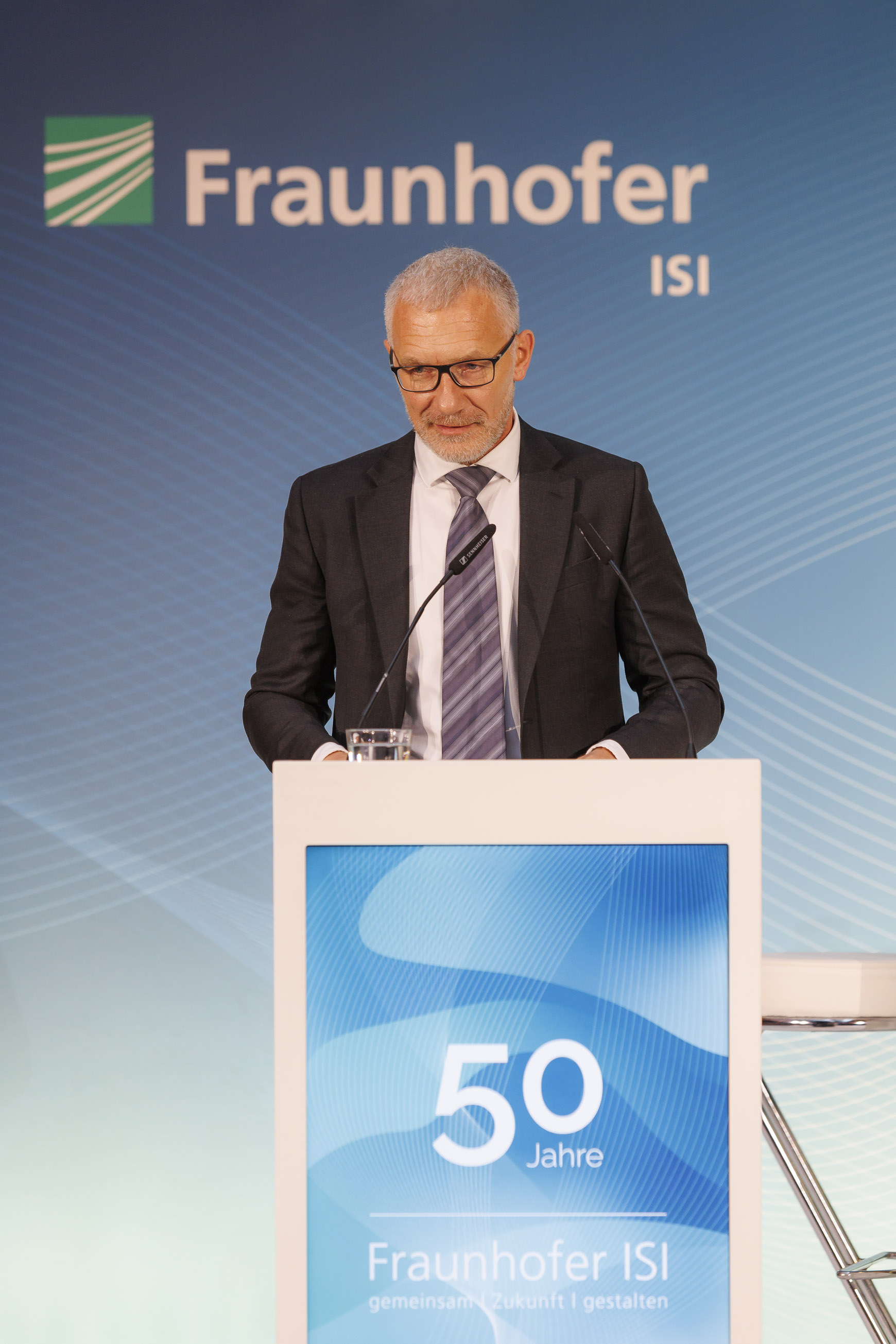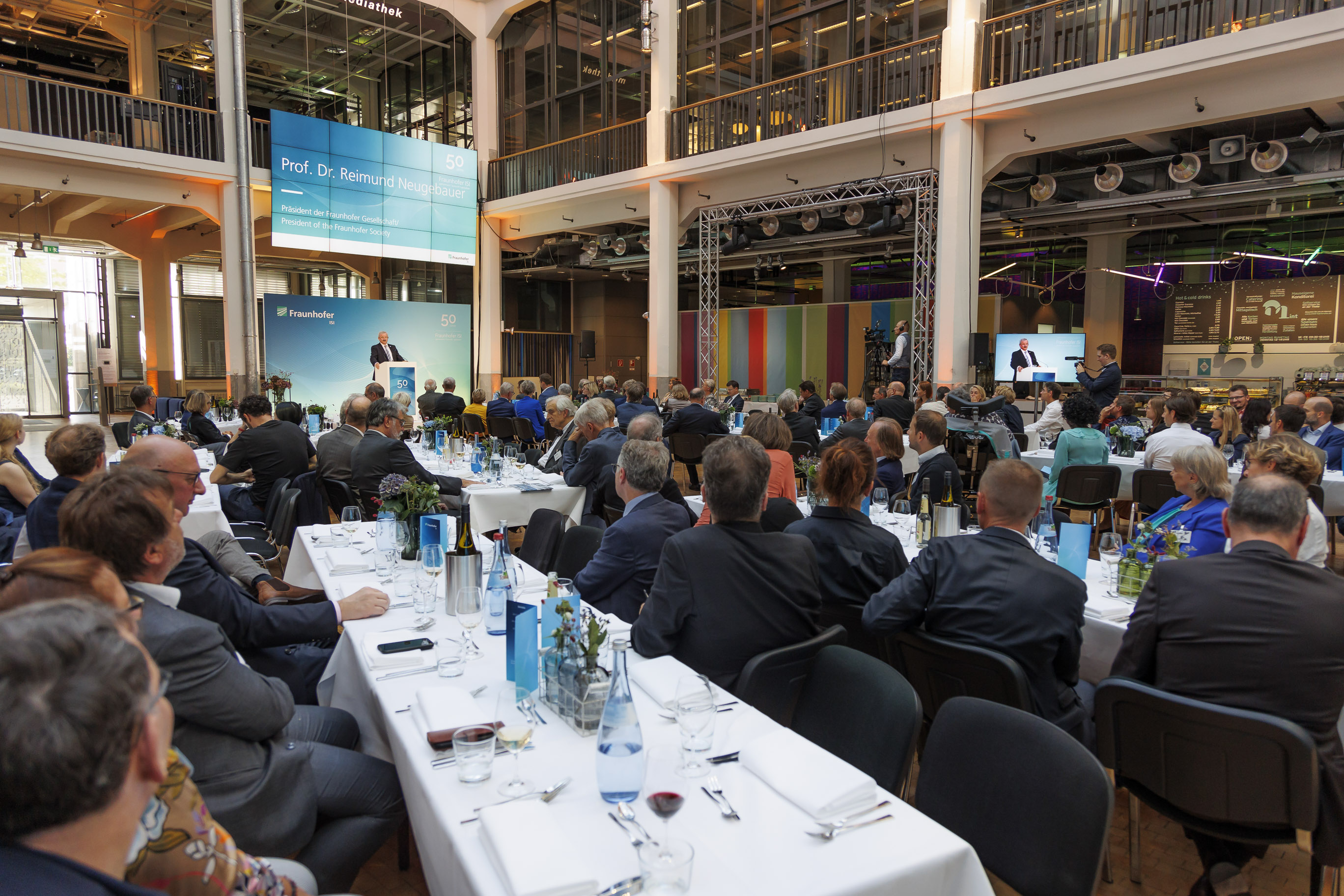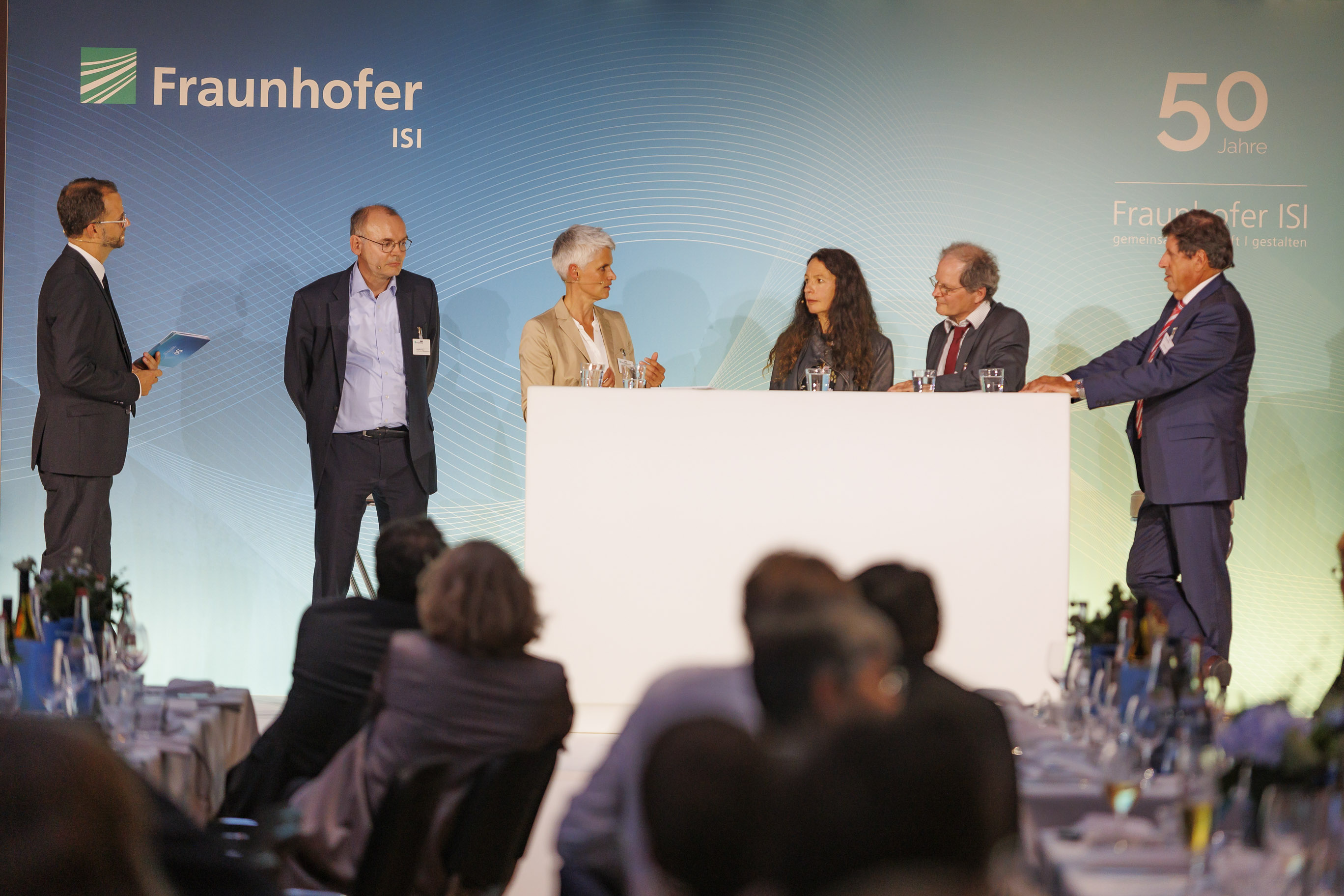Fraunhofer ISI celebrates 50 years of systems and innovation research
It is half a century since the Fraunhofer ISI was founded in 1972. To mark this occasion, around 200 guests from research, politics, business and society came together on Thursday at the ZKM (Center for Art and Media) in Karlsruhe to celebrate the Institute's 50th anniversary. The numerous guest speakers included Joanna Drake from the European Commission, Prof. Reimund Neugebauer, President of the Fraunhofer-Gesellschaft, and Mario Brandenburg, Parliamentary State Secretary at the German Federal Ministry of Education and Research BMBF. They all acknowledged the high relevance of Fraunhofer ISI's research - not only over the past 50 years, but also for the future.
Following the words of welcome by the Institute's Executive Director, Prof. Jakob Edler, Joanna Drake, Deputy Director-General of the European Commission's Directorate-General for Research and Innovation, gave the keynote address on "Mission-oriented policy as a means to address the complexity of society's Grand Challenges". Drake looked at the relevance of innovation research under current circumstances: "The challenges we face in Europe are manifold: intensified crises on the geopolitical front, growing crises that affect budgets, the environment and health care. To overcome these, our innovation systems are transforming."
More relevant than ever - recognition of Fraunhofer ISI's research
Prof. Reimund Neugebauer, President of the Fraunhofer-Gesellschaft, also made it clear in his address that system transformations represent some of the key challenges faced by research and innovation policy in recent years. In this context, he emphasized the great importance of systems and innovation research: "Especially in times of crisis, innovations and technological breakthroughs are pivotal for the competitiveness and future viability of the economy and society. As one of the leading institutes for innovation research in Europe and due to its practiced interdisciplinary mix of technical, economic and social science knowledge, Fraunhofer ISI complements the expertise of the Fraunhofer-Gesellschaft with the systemic analysis of complex systems in order to tackle the challenges facing society as a whole. These analyses not only contribute to building resilience and societal acceptance for future crises, but also embed innovations in a way that makes them better equipped for the future in socioeconomic terms."
The target-oriented support that Fraunhofer ISI's research provides for decision-making is increasingly relevant, as was made clear by the words of commendation from Mario Brandenburg, Parliamentary State Secretary at the Federal Ministry of Education and Research, and those from Michael Kleiner, Ministerial Director at the Ministry of Economics, Labor and Tourism of the State of Baden-Wuerttemberg. They underlined the importance of the institute for both science and industry. They were followed by contributions from the Lord Mayor of the City of Karlsruhe, Dr. Frank Mentrup, who highlighted the Institute's role as part of the Karlsruhe technology region, and from the Chairman of the Board of Trustees, Dr. Manfred Wittenstein, Chairman of the Supervisory Board of WITTENSTEIN SE. The former Director of Fraunhofer ISI, Prof. Frieder Meyer-Krahmer, retired State Secretary, enhanced the ceremony with his perspective of the Institute's history and the vision of its early years.
Fraunhofer ISI's assignment for five decades: Shedding light on the origins and impacts of innovations
Fraunhofer ISI was founded in 1972 during a period of social upheaval. The motivation was to add a new perspective to the Fraunhofer-Gesellschaft. While technologies and solutions for industry are developed by the Fraunhofer-Gesellschaft as a whole, Fraunhofer ISI pursues the goal of providing expertise for politics, business and society, as well as shedding light on the origins and impacts of innovations. This was already the goal of Helmar Krupp, its founding director, and is still being pursued by Fraunhofer ISI today.
The concluding speech by the Institute's Executive Director was on the theme of the anniversary year "Shaping Future Together - 50 years of Fraunhofer ISI: research for tomorrow". The focus was on the motivation that still drives the Institute’s 250 employees today: "To this day, we work on actively shaping the future of us all, and providing our clients with solutions that will also enable successive generations to live well in the future. For us, shaping means providing guidance at a time when people are searching for orientation more than they have in a long time on this continent. Our work has never been more necessary than it is today," explained Edler.
In the subsequent panel discussion, Engelbert Beyer, Ministerial Director of the BMBF, Dr. Mirjam Storim, Head of Innovation Strategy, Strategic Value Creation of the BMW Group, Dr. Steffi Ober, Team Leader Economics and Research Policy at NABU and initiator of the Platform Forschungswende, Prof. Thomas Hirth, Vice President of Karlsruhe Institute of Technology (KIT), and Prof. Rainer Walz, Deputy Director of the Fraunhofer ISI, discussed the question "Economy and Society in Transition: How Can Transformation Succeed?"
The ceremony at the Center for Art and Media is the highlight of the anniversary year, which will continue with numerous events up to the end of the year.

Further information
The Fraunhofer Institute for Systems and Innovation Research ISI analyzes the origins and impacts of innovations. We research the short- and long-term developments of innovation processes and the impacts of new technologies and services on society. On this basis, we are able to provide our clients from industry, politics and science with recommendations for action and perspectives for key decisions. Our expertise is founded on our scientific competence as well as an interdisciplinary and systemic research approach.


